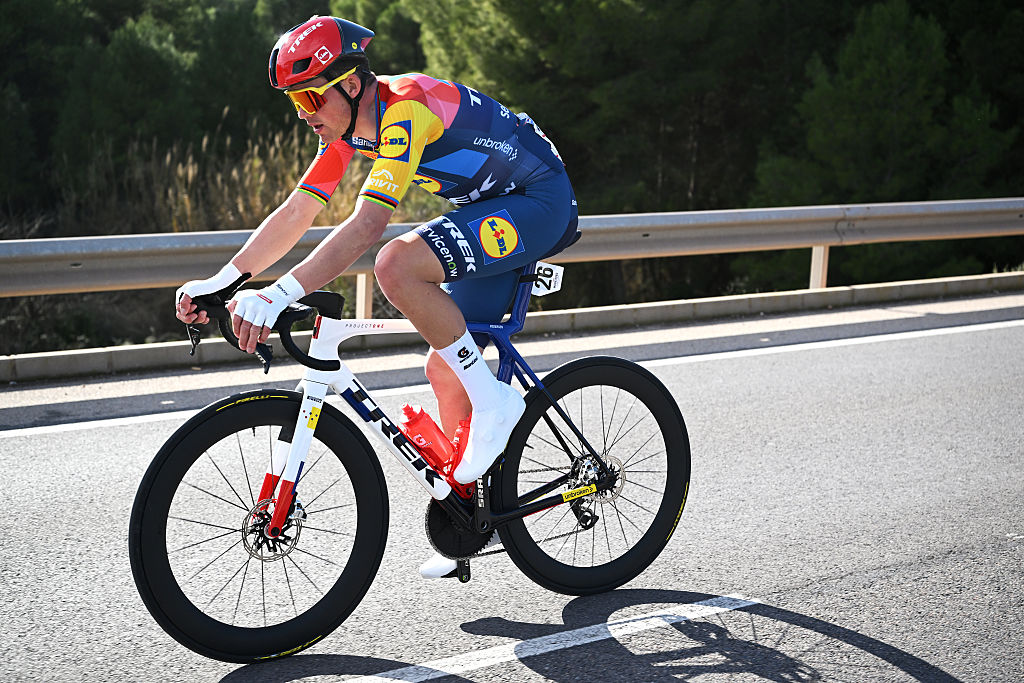Cavendish claims earliest win ever in Giro
Briton hits ground running with victory in first road stage
The latest race content, interviews, features, reviews and expert buying guides, direct to your inbox!
You are now subscribed
Your newsletter sign-up was successful
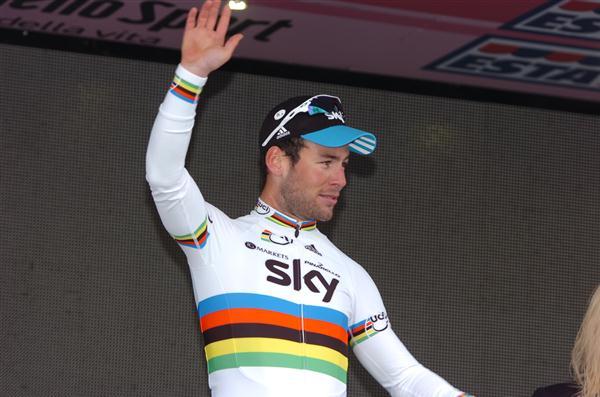
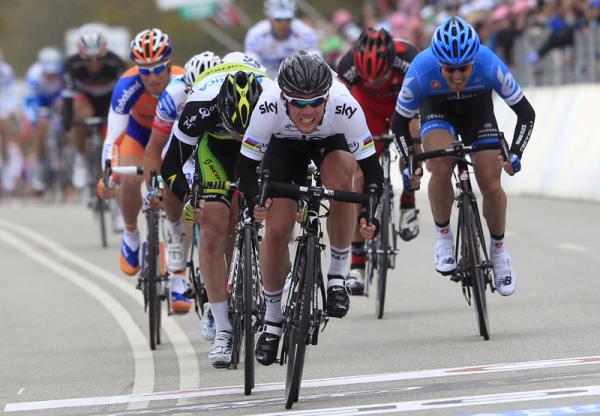
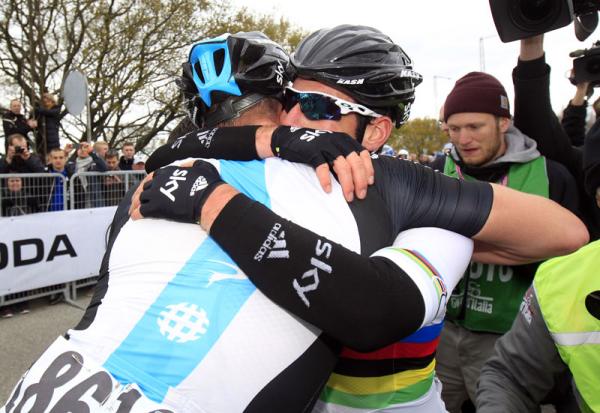
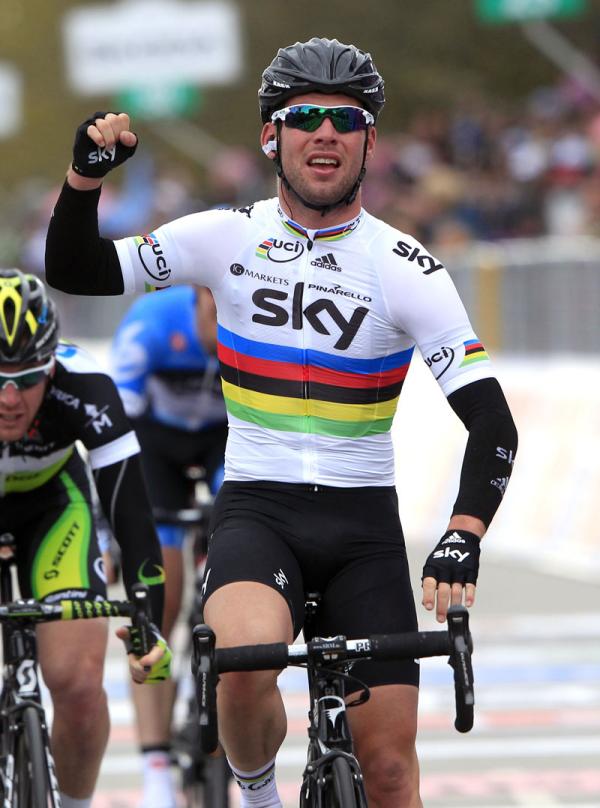
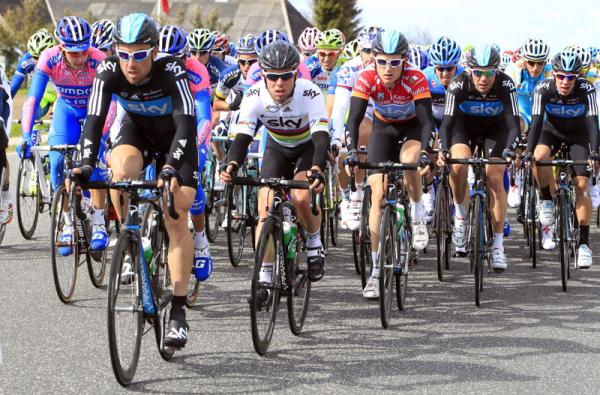
Given that Sunday's win in the Giro d'Italia was his 31st in a Grand Tour for Mark Cavendish (Sky), you might well consider it business as usual. But as the Manxman pointed out, in one way at least it was not: he had never won so early in the Giro. This year, Cavendish took the first available bunch sprint opportunity during stage 2.
"I've won five races this year, but I don't think I've ever won so early in the Giro," Cavendish said afterwards.
"I'm with a new team for the Grand Tours, and to start off by winning the first sprint stage is really special. [But] I've got good form, I've been training hard."
Cavendish's earliest prior win in the Giro was way back in 2008, when he took stage 4. For the reigning world champion to get that first victory notched up so early on was therefore a major morale boost, particularly as he is racing for the first time for Team Sky in a Grand Tour.
In a sprint with distinct echoes of his victory at Copenhagen in the world championship last year, Cavendish once more finished ahead of Australian Matt Goss (Orica-GreenEdge), the only rider who came close to beating him, on a similarly long, draggy uphill sprint . This time, though, Cavendish was able to raise his arms in victory with the rainbow bands of world champion on his chest, also a first for the Manxman in one of cycling's big three stage races.
After taking a single bite of cake which Taylor Phinney (BMC), sitting next to him in the press conference, had received from the TV broadcasters of the Giro, RAI, Cavendish analysed the fact that it has been more than a month since he did a full-on sprint.
Although he was third in the Tour de Romandie's prologue and worked his finger to the bone for teammate Bradley Wiggins throughout the week-long Swiss stage race, it has been well prior to the birth of his baby daughter this April, when he was obviously not racing, that Cavendish has been going all out for the line.
The latest race content, interviews, features, reviews and expert buying guides, direct to your inbox!
"I wasn't so sure how my sprint would be. It's been a while. I've lost a lot of weight - and I'm putting it back on eating this cake." he half-joked.
"So I wasn't too sure. But yeah, my sensations were good, I was there, and I felt good during the day."
"I spoke to 'G'" - Geraint Thomas who gave Cavendish a rock solid leadout despite a difficult finish - "during the day, and he said he wasn't feeling so great, but he came through fine."
"It wasn't an easy day, though. The bunch was bunched up so it might have looked easy, but it wasn't. To keep a team together under those circumstances, particularly if you haven't worked together before, is a difficult task."
"We had some experienced guys [teammates] there, like Jez Hunt and Bernie Eisel, and it went fine."
"I'm very pleased, it was windy today and not easy, and there weren't too many teams interested in keeping the bunch together as a unit."
"[Local team] Saxo Bank really wanted to break it up at one point so we had to be careful and really be on our guard."
Cavendish pointed out, though, that "things are changing in the bunch, and that means there are a lot more crashes."
"Sprint teams are fighting the GC teams now, and rather than the bunch sprint stages just being left to the sprint teams, it gets a lot more stressful, specially when it's windier. You see [GC] guys worrying about losing time because of the splits and trying to be up there in case there's a split. Every single kilometre of every day is just stressful."
On a completely different note altogether, Cavendish was asked about what memories he had of Wouter Weylandt, who died in an accident on stage 3 of last year's Giro. Tomorrow's stage three will be dedicated to the memory of the Belgian.
"He was a nice guy," Cavendish said. "He always had a smile on his face. What happened last year was tragic, and for sure he'll be remembered fondly tomorrow."
Alasdair Fotheringham has been reporting on cycling since 1991. He has covered every Tour de France since 1992 bar one, as well as numerous other bike races of all shapes and sizes, ranging from the Olympic Games in 2008 to the now sadly defunct Subida a Urkiola hill climb in Spain. As well as working for Cyclingnews, he has also written for The Independent, The Guardian, ProCycling, The Express and Reuters.

